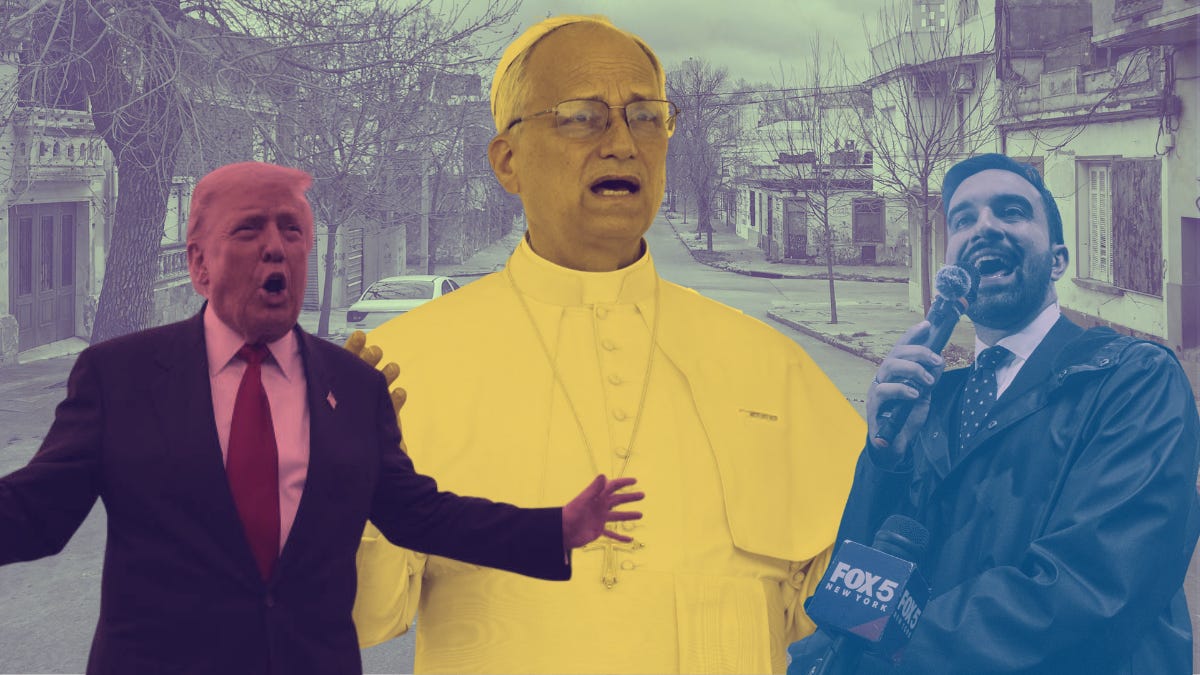50-year mortgage vs. Catholic Economics
Why wealth matters more than money
Trump recently floated the idea of a 50-year mortgage.
NYC Mayor-Elect Zohran Mamdani ran on a platform of cheap rent.
And both solutions put the American people in the same place: You pay less monthly for living expenses, but you never own.
But Catholic economics has always promoted ownership.
So how should Catholics react to these policies?
The Catholic Principle Nobody’s Talking About
Catholic social teaching has always been clear about one thing: ownership matters more than money.
Not ownership as an investment. Ownership is the foundation for family stability and human flourishing.
Pope Leo XIII argued in Rerum Novarum that private property is a fundamental human right. It is the basis for workers to build stable lives and raise families. It’s about using something, not just having something.
But somewhere along the way, we stopped thinking about ownership and began focusing solely on cash flow. Leo XIII warned about this. He said workers should be able to “convert their wages” into property ownership. (Rerum Novarum, §46)
That’s the phrase that matters: convert. Money should be converted into something real. Not hoarded or consumed. Converted into ownership.
But 50-year mortgages and rent control both prevent that conversion from happening.
Money has potential energy; ownership is actual
There’s the distinction most people miss.
Imagine two families. One has $500,000 in stocks. The other has a $500,000 house, paid off, that’s been in the family for generations.
The market says their net worth is the same. But their real worth is not even close.
Money and Property are like potential and kinetic (actual) energy. Money is always potential. It’s a representation of value, waiting to be converted into something real. But ownership is kinetic. It’s actually producing value right now.
The house has done something. It raised kids. It hosted friends. It provided stability through job losses and hard times. It gave the family a place to start a small business in the garage. It’s where grandkids come for Christmas.
That house has kinetic energy, it’s actively creating value in the family’s life.
The stock portfolio has potential energy. It could be turned into something valuable. But right now, it’s just a number on a screen.
The Problem with Both Solutions
Trump’s 50-year mortgage lowers your monthly payment. Great. So you have more money left over each month.
Okay great. For what? To consume more? To hoard more cash in your checking account?
If you’re paying a mortgage for 50 years, you don’t really own that house. You’re renting it from the bank. With the average age of first-time home buyers hitting 38 years old, you might be dead before you pay it off.
The mortgage optimizes for money, not ownership.
The same goes for progressive proposals like cheap rent or rent control. These keep more money in your pocket each month. But they don’t help you own anything. You’re permanently renting your apartment, permanently dependent on landlords or government assistance.
You’re optimizing for consumption, not wealth-building.
Both sides are trying to help people make a living by giving them more spending money. Neither side is asking: how do we help people actually own something?
What Real Wealth Looks Like
Real wealth isn’t about how much money you have. It’s about what you own and what value you can pass on to your kids and community.
A paid-off house you can pass to your kids
A family business that supports your community
A vibrant parish school where your kids get an excellent education
A donation to a beautiful church building that anyone can walk into
Leo XIII called private property ownership the “most fundamental principle” for improving workers’ lives. (Rerum Novarum, §46).
He argued that when workers own property, they “look to the future with tranquility” because they have real security. (Rerum Novarum, §47) They work harder, care more, and build stronger families. Because they’re building something real, not living paycheck-to-paycheck.
The irony is that optimizing for ownership usually generates more money anyway. But optimizing for money doesn’t necessarily lead to ownership (especially when your “solution” is 50 years of debt.)
The Practical Takeaway
It’s not my job to redesign the economy or propose new federal housing policy.
But Catholics need to think differently about their own finances.
Stop looking at your budget as “how much do I owe in bills and debt payments, and how much do I have left to spend?”
Start looking at your money as a tool to build real wealth for your family and your community.
Because money that sits in your bank (or 401k) has no real value until you use it to build something.
Yes, buy a house and work to pay it off. Not because real estate is a good investment, but because ownership creates stability and generational wealth for your family.
Spend money on food to have family dinners and invite people over, not just to consume.
Support your parish school so it can thrive. Invest in community centers. Support local businesses that employ your neighbors.
These things build actual wealth. They create value that money can’t measure and can’t accomplish on its own.




This is an excellent point. As a former economist I railed against GDP as a measure of economic progress. It’s not, but it does maintain the illusion. Catholics do need to create a Catholic economy where we can financially support one another—Catholic Shires would go along way toward that end.
Real wealth isn’t about how much money you have. It’s about what you own and what value you can pass on to your kids and community.
Love this perspective.